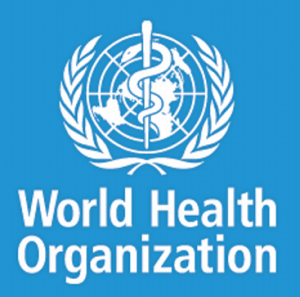WHO releases new treatment guidelines for STIs
 The World Health Organisation (WHO) has released a new treatment guideline for the treatment of the three common sexually transmitted infections (STIs) – Gonorrhea, Chlamydia, and Syphilis.
The World Health Organisation (WHO) has released a new treatment guideline for the treatment of the three common sexually transmitted infections (STIs) – Gonorrhea, Chlamydia, and Syphilis.
Globally it is estimated that 78 million people are infected with gonorrhea, 131 million are infected with chlamydia, and 5.6 million with syphilis.
The WHO is calling on countries to start using the updated guidelines immediately as recommended in the Global Health Sector Strategy for STIs (2016-2021) endorsed by governments at the World Health Assembly in May 2016.
The guidelines made available to the Ghana News Agency by Gregory Härtl from the Department of Communications, WHO, revealed that resistance of these STIs to antibiotics had increased rapidly in recent years and had reduced treatment options.
The WHO says STIs often go undiagnosed and were becoming more difficult to treat, with some antibiotics now failing as a result of misuse and overuse.
It said of the three STIs, gonorrhoea had developed the strongest resistance to antibiotics and that strains of multidrug-resistant gonorrhoea that did not respond to any available antibiotics had already been detected.
It said antibiotic resistance in chlamydia and syphilis, though less common, also existed making prevention and prompt treatment critical.
It shows that when left undiagnosed and untreated, these STIs could result in serious complications and long-term health problems for women such as pelvic inflammatory diseases, ectopic pregnancy and miscarriage, and infertility in both men and women.
The report said infection with chlamydia, gonorrhoea and syphilis could also increase a person’s risk of being infected with HIV two to three fold.
The guidelines did not recommend quinolones (a class of antibiotic) for the treatment of gonorrhoea due to widespread high levels of resistance.
Syphilis is spread by contact with a sore on the genitals, anus, rectum, lips or mouth of an infected person, or from mother to child during pregnancy.
If a pregnant woman has untreated syphilis and the infection is transmitted to the fetus, this often causes it to die.
In 2012, mother-to-child transmission of syphilis resulted in an estimated 143 000 early fetal deaths/stillbirths, 62 000 neonatal deaths and 44 000 babies being born preterm/low-birth-weight.
To cure syphilis, the new WHO guideline strongly recommends a single dose of Benzathine Penicillin – a form of the antibiotic that is injected by a doctor or nurse into the infected patient’s buttock or thigh muscle.
This is the most effective treatment for syphilis; more effective and cheaper than oral antibiotics.
Benzathine Penicillin was recognised by the 69th World Health Assembly in May 2016 as an essential medicine which has been in short supply for several years.
It said WHO was working with partners to identify countries with shortages and help monitor global availability of benzathine penicillin to close the gap between national needs and supply of the antibiotic.
Chlamydia is the most common bacterial STI and people with this infection are frequently co-infected with gonorrhoea.
Symptoms of chlamydia include discharge and a burning feeling when urinating, but most people who are infected have no symptoms.
It said even when chlamydia is asymptomatic; it could damage the reproductive system.
The new guidelines are also in line with the Global Action Plan on Antimicrobial Resistance, adopted by governments at the World Health Assembly in May 2015.
When used correctly and consistently, condoms are one of the most effective methods of protection against STIs.
Source: GNA
